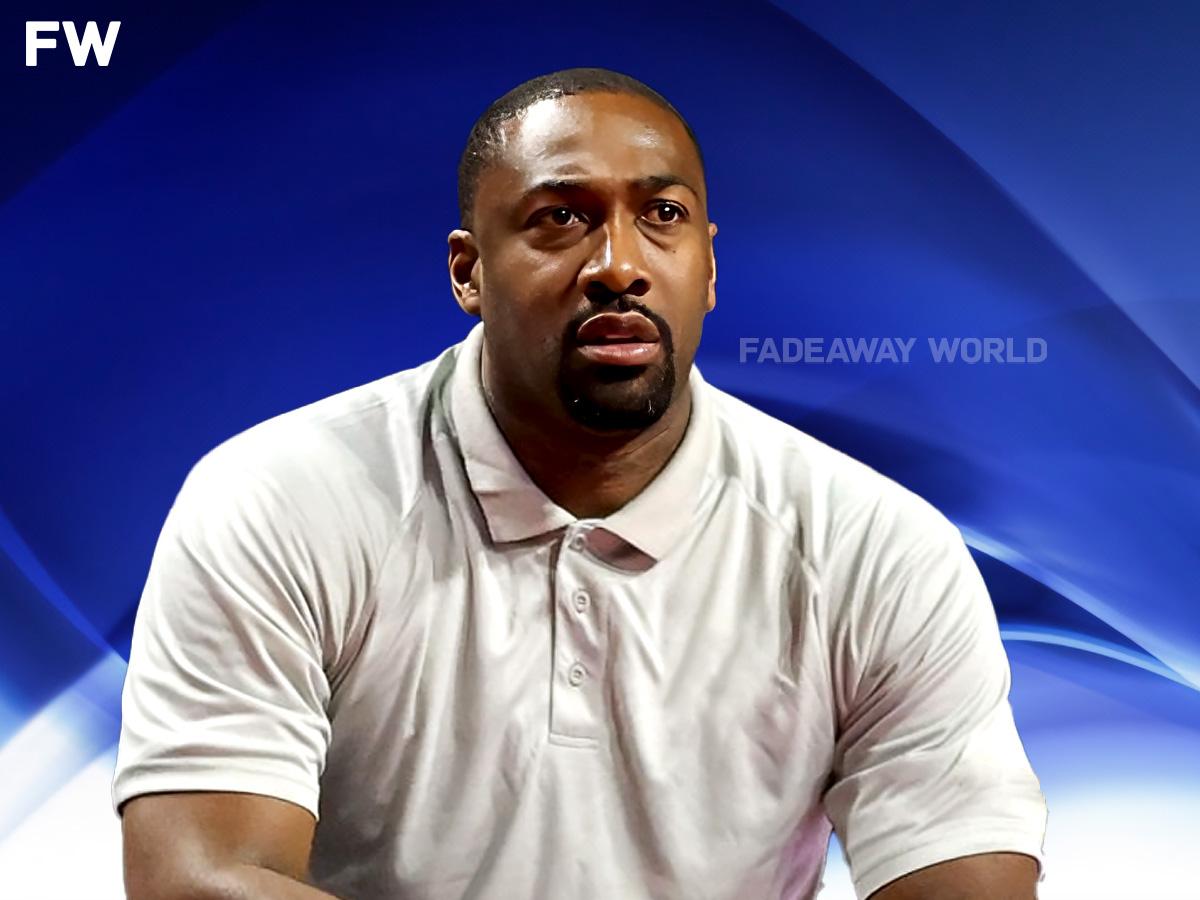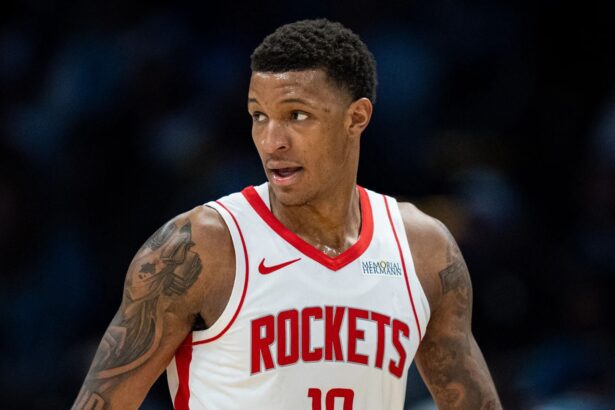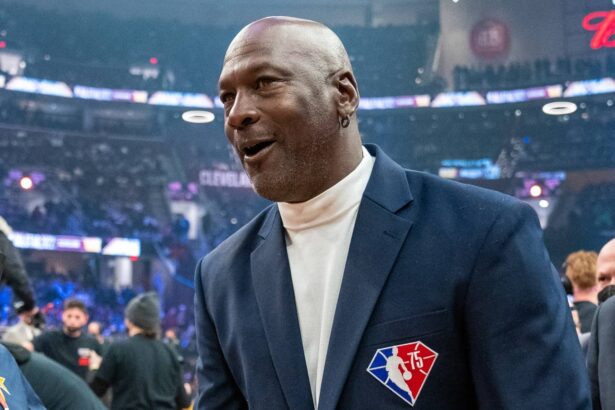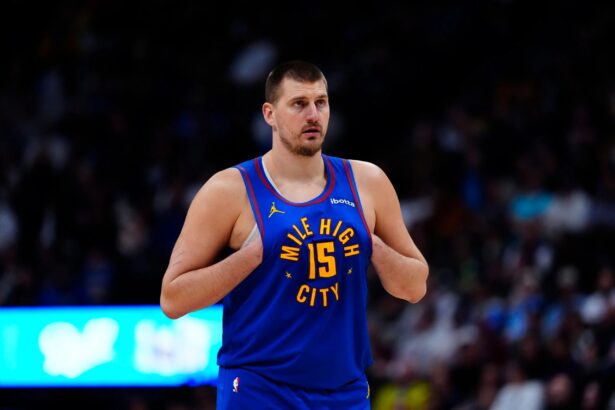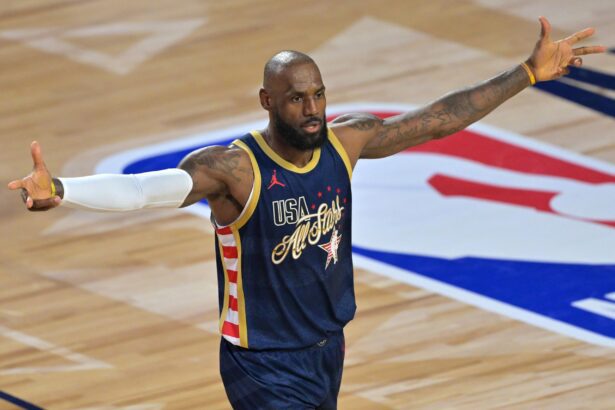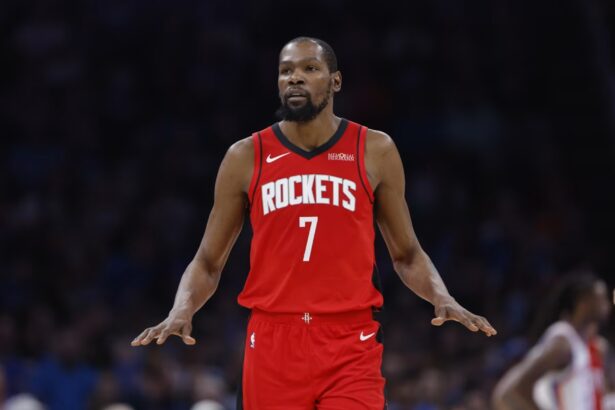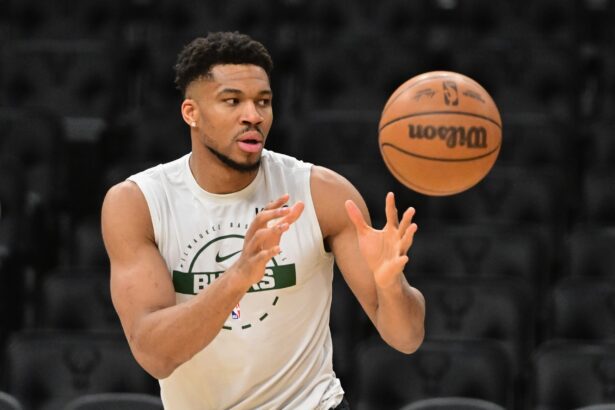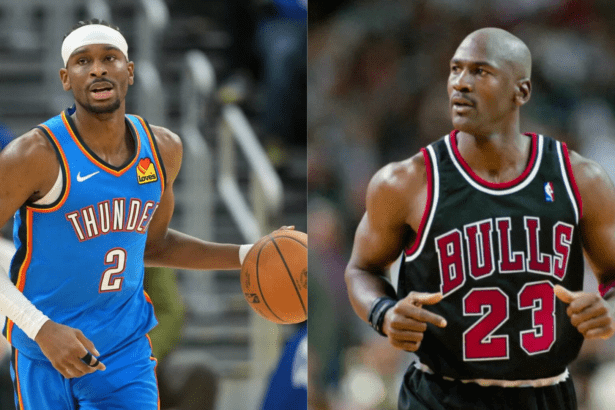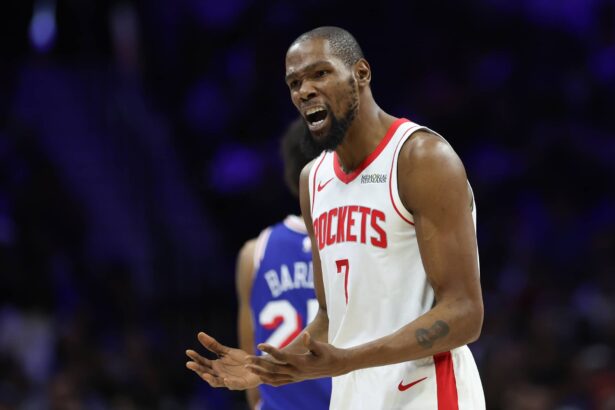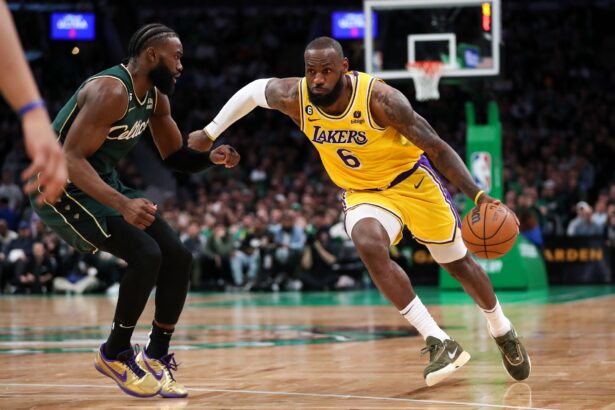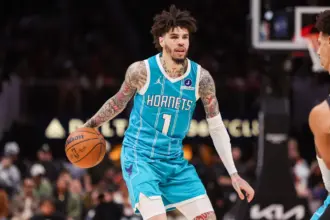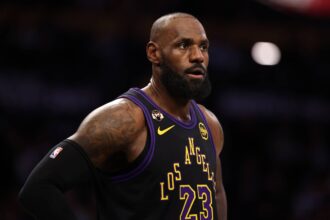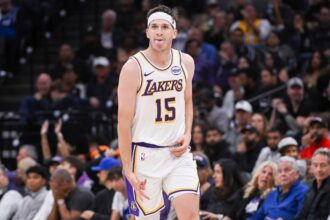On the podcast “Gils Arena,” Gilbert Arenas, Brandon Jennings, and Kenyon Martin delved into the darker side of NIL (Name, Image, Likeness) deals, highlighting the potential exploitation of young athletes by both opportunistic individuals and, more significantly, their own parents.
We will begin by examining the insights shared by each member of the podcast, all of whom are former NBA players with valuable knowledge and perspectives on this sensitive topic.
Brandon Jennings: “I mean, talking about our stories, talking about the things that we went through. I mean, when I was 15, 16, I had a lot going on. 17, I didn’t get money from this person, that person, that person. So I mean, it was a lot of just chaos early.”
“And everybody’s just handing anything to you because you have something that they want. So I think with the NIL deals and all these people coming around, I think the youngest need to learn how to just say no. You know, no is a powerful word because it’ll let people know you’re not f***ing around.”
Kenyon Martin: “That’s the parents… It’s the parents right being more involved not being thirsty not trying to live by through the kid. Not jumping at the first opportunity. Somebody waves some money in front of the child because they can play, right?”
“Not exploiting the child. Hey, this is starts there, right? Mm hmm. And there and then there will be no room for the poachers and the people you talk of like to have. If your parents not thirsty for it and not put you in a situation.”
Gilbert Arenas: “Like parents, like my mind, it’s parents Right there. It’s the vultures gonna come because the parents are thirsty. This ain’t no kid problem, right a kid don’t have no expense right, you know for the most part the kids ain’t even got cars right.”
“You know, anywhere from the ages of 15, you know, 18, a thousand dollars a month for them is amazing. So when you’re sitting here talking, you’re talking to a parent. These vultures is coming to the parent because they know the parents is selling it. They’re selling their kids and they’re going to keep selling their kids right there.”
“Do it if you’re gonna put a rule in these rules have to be set in so the parents don’t get money. These rules or whatever this money that’s coming in has to be put in to accounts that doesn’t unlock until the kid turns 18 where he has full control.”
“These kids are getting hundreds of thousands of dollars and they’re not touching no money, this is parents. Parents rolling around new cars and doing this and you know what I mean?”
Jennings stressed the importance of teaching young athletes the power of saying no to exploitative offers, emphasizing that a firm refusal can establish boundaries and protect their interests. He advocated for sharing personal stories of hardship and temptation to educate the younger generation about navigating such challenges.
Martin echoed Jennings’ sentiments, attributing much of the problem to overeager parents seeking to live vicariously through their children’s success. He emphasized the need for parental restraint, urging them to resist the allure of immediate financial gain and prioritize their children’s well-being over monetary incentives.
Arenas bluntly identified the root of the issue as parental greed, highlighting how opportunistic individuals prey on parental vulnerability to exploit young athletes for financial gain. He criticized parents who prioritize personal enrichment over their children’s long-term welfare, likening the situation to selling their offspring to the highest bidder.
Arenas proposed strict regulations to curb parental exploitation, suggesting that funds from NIL deals be deposited into accounts inaccessible until the athlete reaches adulthood. This measure aims to prevent parents from squandering their children’s earnings and ensures that athletes have control over their finances once they come of age.
Furthermore, Arenas condemned the lavish lifestyles adopted by some parents at the expense of their children’s financial security, advocating for responsible financial management and parental accountability.
The discussion underscored the urgent need for parental education and regulatory measures to protect young athletes from exploitation in the burgeoning NIL landscape. By fostering a culture of transparency, accountability, and prudent financial management, stakeholders can safeguard the interests and well-being of the next generation of athletes.
NIL Deals Could Be Dangerous For Parents And Kids
NIL deals have ushered in a new era where the allure of financial gain has the potential to overshadow other important aspects of a young athlete’s life. With lucrative opportunities now on the table, there’s a danger that parents may prioritize monetary rewards over their children’s well-being and aspirations.
In the pursuit of NIL deals, parents could become increasingly focused on pushing their children towards sports, disregarding their wishes, hobbies, and passions. Rather than nurturing their children’s genuine interests, there’s a risk that parents may pressure them into pursuing athletic endeavors solely for financial gain. This could lead to a sense of disillusionment and resentment among young athletes, as their autonomy and individuality are overshadowed by the pursuit of money.
Furthermore, the pervasive influence of NIL deals could instill harmful beliefs in young athletes, shaping their attitudes toward money and success. Growing up in an environment where financial gain is prioritized above all else, children may internalize the message that money is the ultimate measure of worth and success. This could lead to a distorted worldview where material wealth is valued above personal fulfillment, passion, and genuine achievement.
As a result, young athletes may carry these beliefs into adulthood, shaping their decisions and priorities in the future. The relentless pursuit of money could become ingrained in their psyche, leading to a relentless pursuit of financial success at the expense of other aspects of life such as personal relationships, mental well-being, and fulfillment.
In essence, the rise of NIL deals has the potential to fundamentally alter the landscape of youth sports, shifting the focus away from personal growth, passion, and enjoyment, and towards financial gain.
It’s imperative that parents and guardians approach NIL deals with caution, prioritizing their children’s holistic development and well-being above monetary rewards. Failure to do so could have long-lasting implications, shaping the attitudes and beliefs of young athletes for years to come.
Thank you for being a valued reader of Fadeaway World. If you liked this article, please consider following us on Google News. We really appreciate your support.

